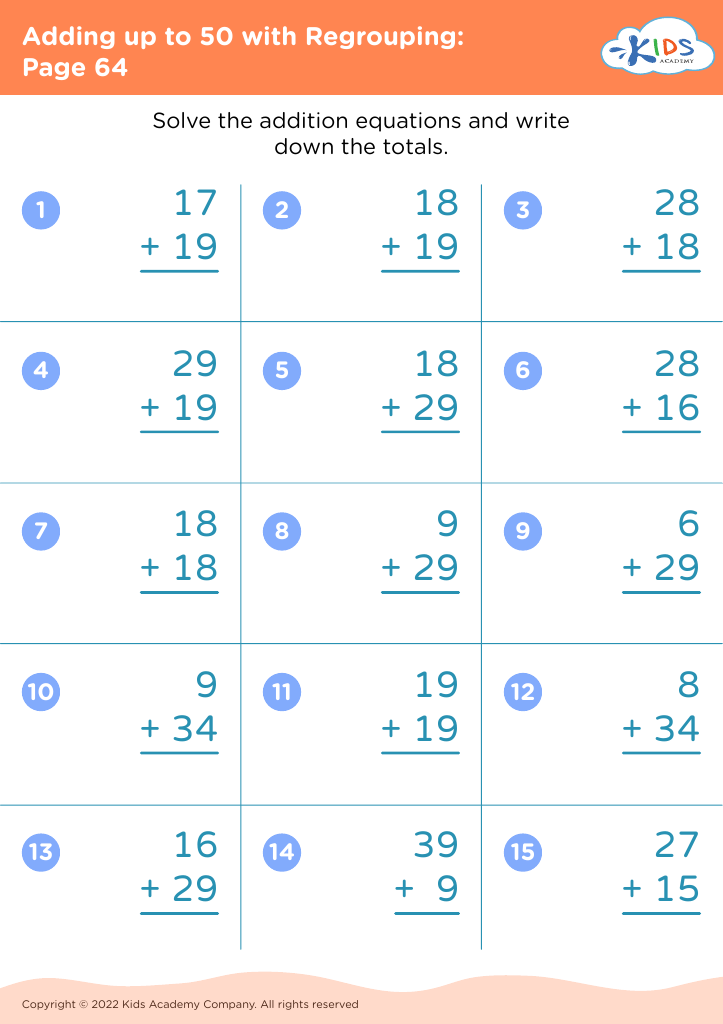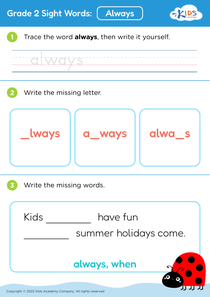Money recognition Grade 2 Worksheets
8 filtered results
-
From - To
Welcome to our Money Recognition Grade 2 Worksheets! Designed specifically for second graders, these engaging worksheets help teach students the value of different coins and bills through interactive activities. Each worksheet aims to develop essential skills in identifying, counting, and using money effectively. With a variety of exercises, including matching coins to their values and solving word problems in real-life scenarios, learners will build confidence and proficiency in financial literacy. Perfect for classroom use or at-home practice, these comprehensive resources ensure a fun and effective way for young learners to master money recognition.提升孩子的财商技能,促进成长与学习。
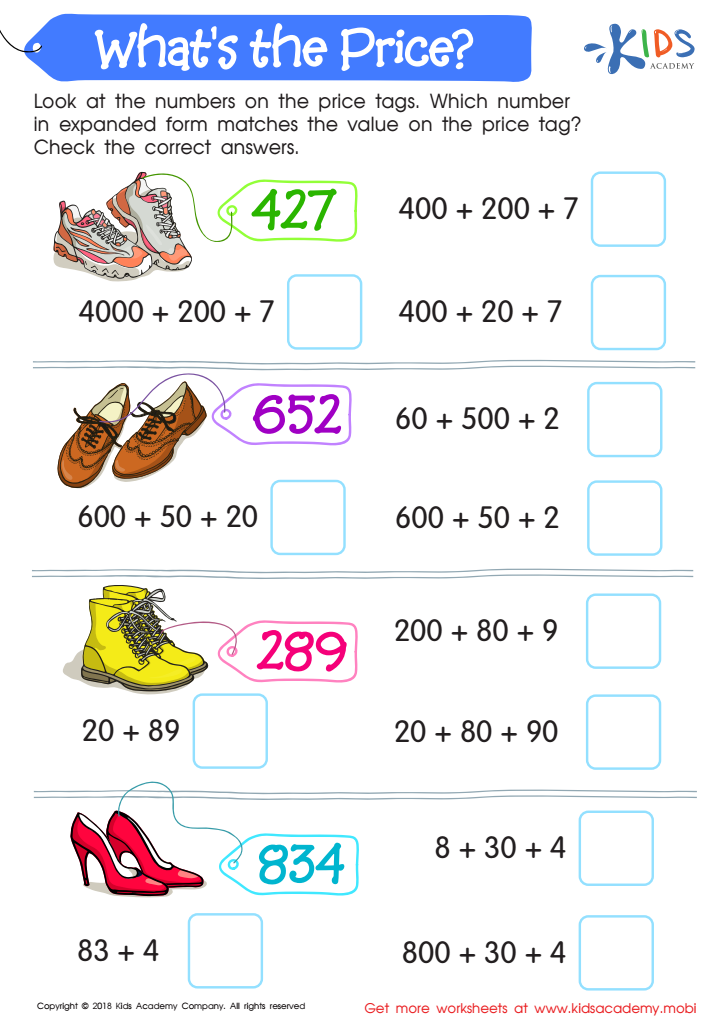

What's the Price? Worksheet
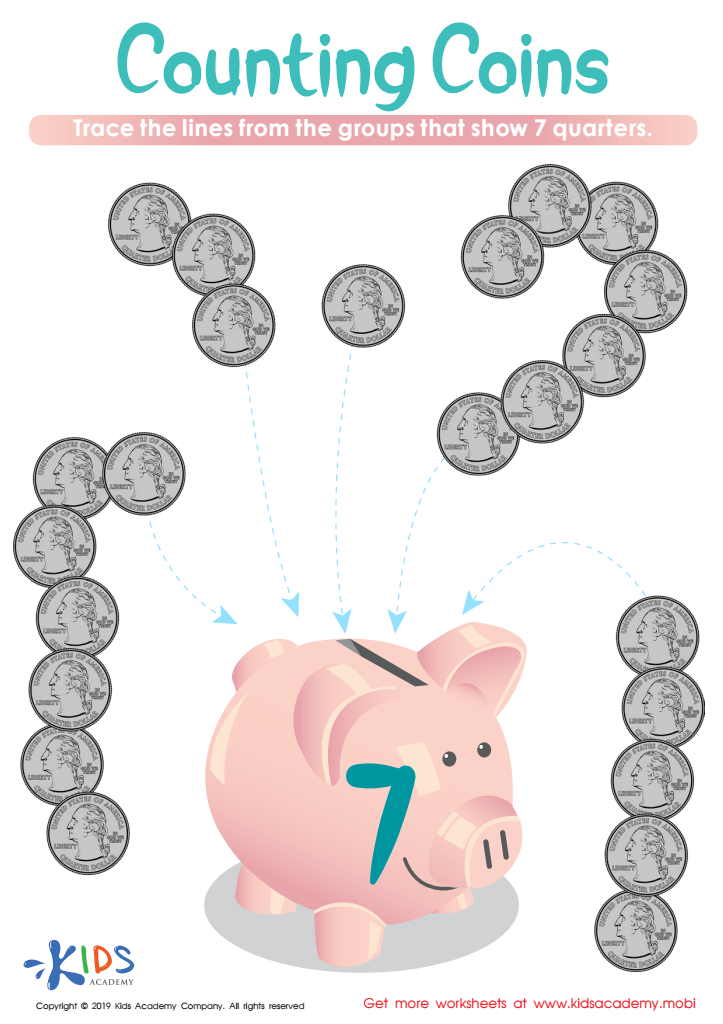

Counting Coins Worksheet
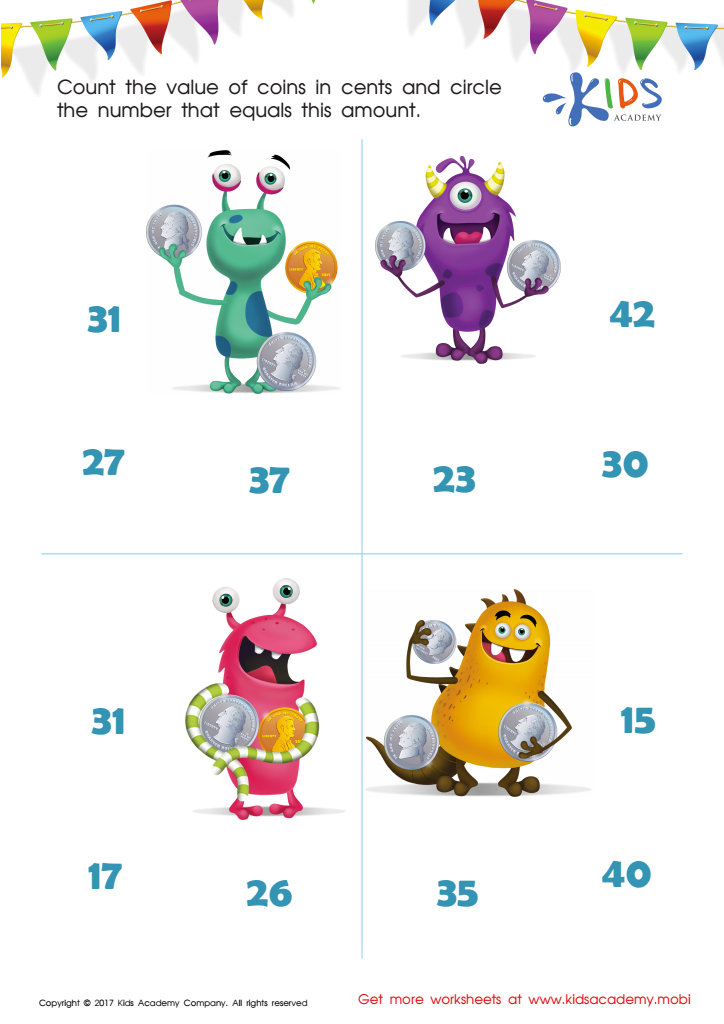

How Many Coins Money Worksheet
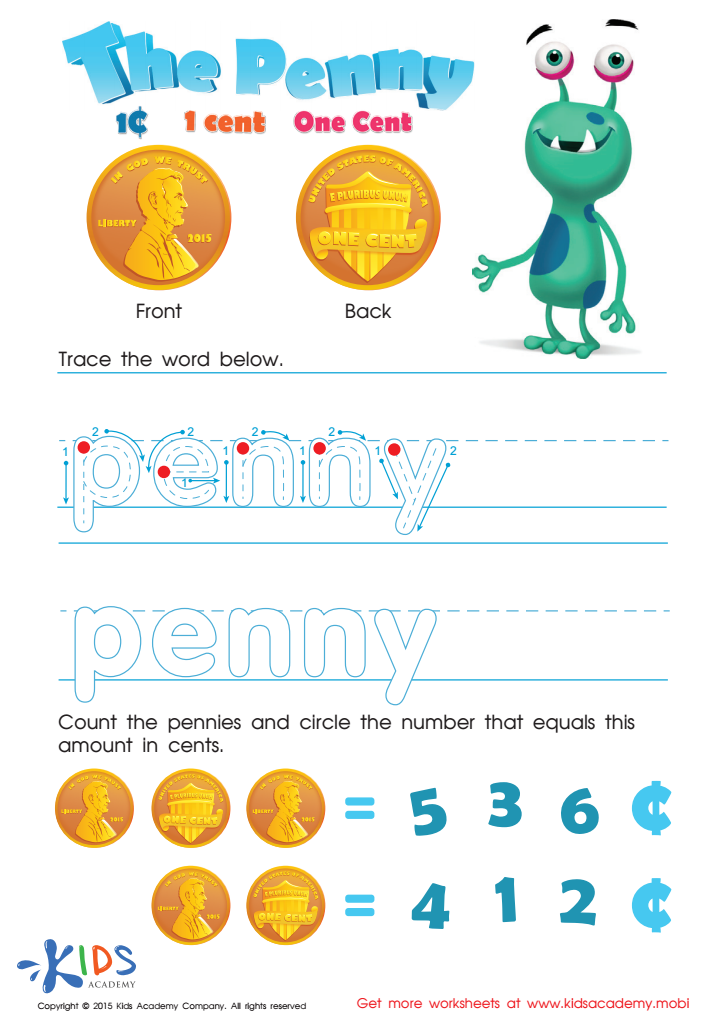

One Cent or the Penny Money Worksheet
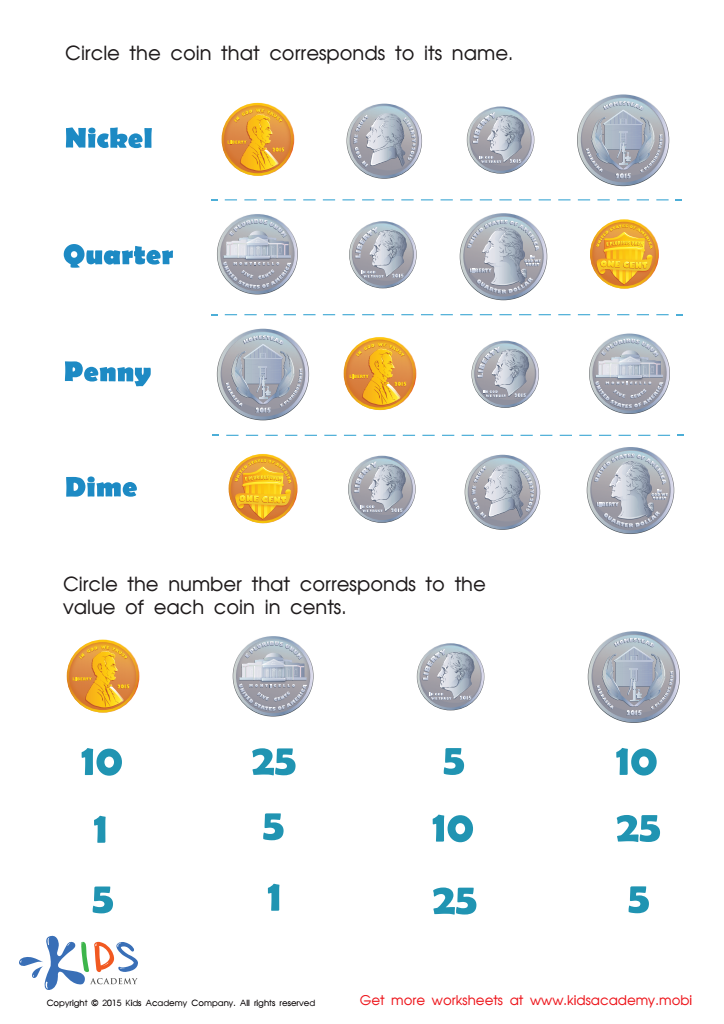

Coin Names and Values Money Worksheet
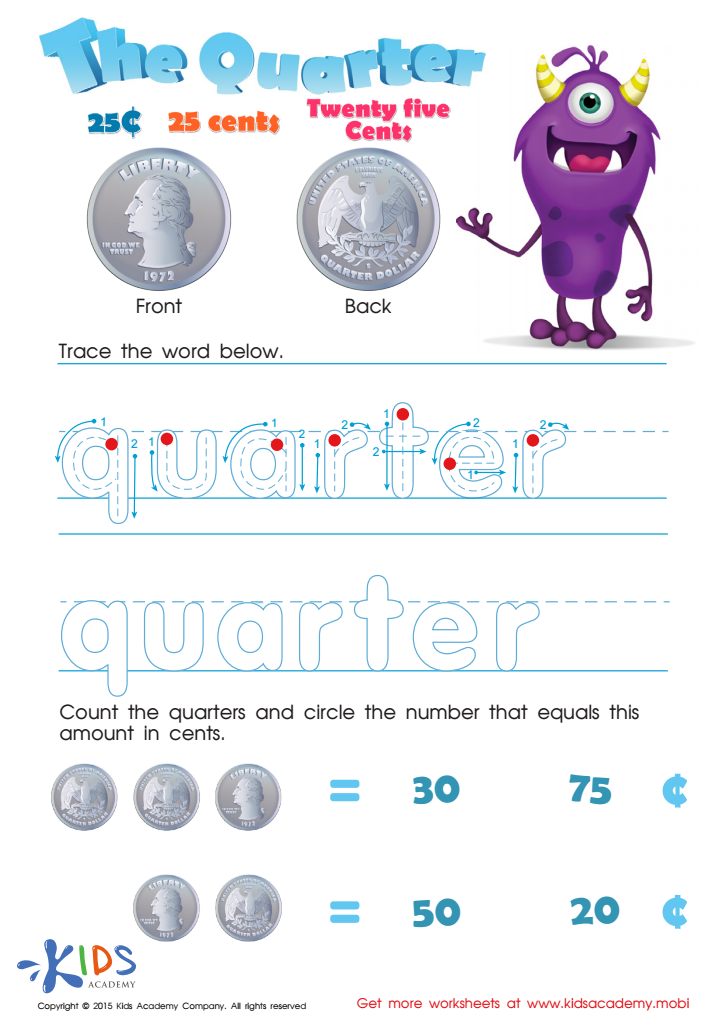

Twenty Five Cents or the Quarter Money Worksheet
Money recognition in Grade 2 is essential as it lays the foundation for financial literacy, a critical life skill. At this age, children begin to encounter money in practical situations—such as shopping or participating in games involving cash. Understanding different coin and bill denominations helps them develop essential math skills, such as counting and making change, fostering their numerical fluency and critical thinking.
Moreover, money recognition promotes independence and responsibility. It equips children with the skills they need to recognize the value of items and make informed purchasing decisions. By learning to identify money, children gain the confidence to engage in small financial transactions, enhancing their social skills and sound financial decision-making early on.
Additionally, fostering money recognition can spark conversations about value, savings, and budgeting. It introduces basic economic concepts, which are crucial for real-life scenarios they'll face in the future. Collaboratively focusing on this topic in school and at home creates a consistent learning environment. Ultimately, when parents and teachers prioritize money recognition, they empower children to navigate a world where financial literacy significantly impacts their future well-being and success.

 Assign to My Students
Assign to My Students


